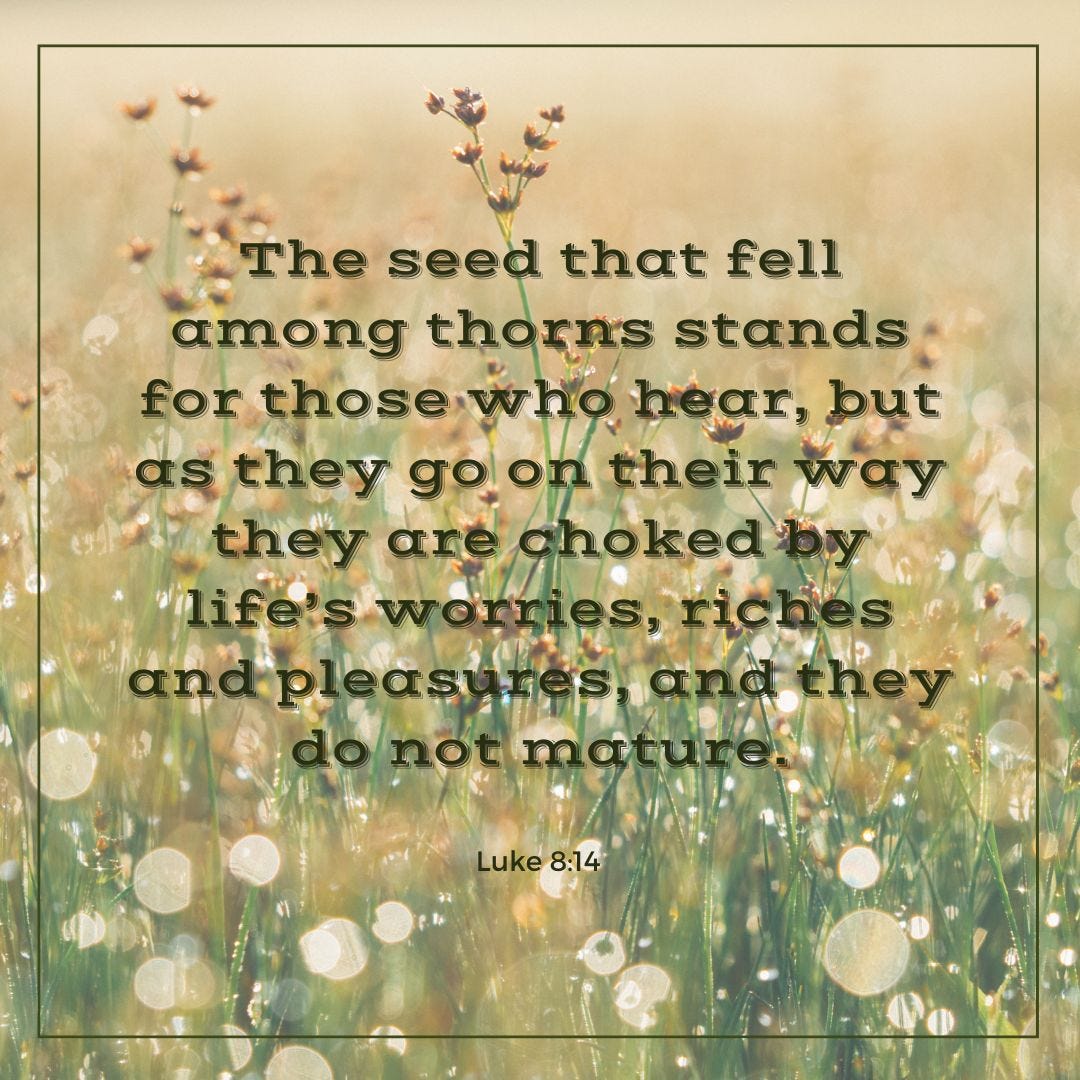“The seed that fell among thorns stands for those who hear, but as they go on their way they are choked by life’s worries, riches and pleasures, and they do not mature.” — Luke 8:14,
“Kubla Khan: or A Vision in a Dream” is an unfinished 1797 poem by Samuel Taylor Coleridge. I won’t describe it for you — you can and should read it for yourself. It is enchantingly beautiful, exotic, and mystical.
The 54-line fragment was supposed to be significantly longer. Coleridge said he developed the full poem in a dream but lost it. His account is paraphrased here:
When I woke up, I clearly remembered the entire vision. I quickly grabbed my pen, ink, and paper, and eagerly wrote down the lines that are now preserved. Unfortunately, I was interrupted by a person on business from Porlock and was kept busy for over an hour. When I returned to my room, I was shocked and disappointed to find that, although I still had a vague sense of the general idea of the vision, most of it had slipped away—like the ripples on the surface of a stream after a stone is thrown in—leaving me with just a few scattered lines and images.
Since publication of the poem, the “person on business from Porlock” has taken a lot of heat for robbing us of what might have been an even greater work of art than the remaining fragments. “A person from Porlock” is now a common literary allusion to undesired intruders that hinder inspired creativity.
Coleridge, too, has taken blame for opening his door to the intruder. If he had pretended not to be home or politely dismissed his visitor, “Kubla Khan” might be complete.
In our walk with God, we are all prone to interruptive visits by figurative persons on business from Porlock. In his explanation of the parable of the sower, Jesus says in Luke 8:14, “The seed that fell among thorns stands for those who hear, but as they go on their way they are choked by life’s worries, riches, and pleasures, and they do not mature.”
In other words, the word and spirit of God sometimes do not sink into our hearts because of continual worldly disruptions.
I’m as good an example as any. I want to live out God’s plan and purpose for my life — a plan that requires loving Him and loving others. I try to improve on those every day, but as soon as I get going, I’m interrupted by a Porlock visitor appearing as some material disruption, distraction, or digression. Just when I’m showing love, faith, patience, and self-control, the door knocks, and in walks frustration in the form of a dumb educational directive, an email from an angry parent, or disrespect from a surly student. That’s when the poetry in God’s plan turns into fragments at my feet.
But the good thing about a person from Porlock is, like Coleridge, we have power over him. When he knocks, we can turn our ears to God’s voice instead. If he demands to be addressed, we can dismiss him quickly with a polite rebuke. In other words, we do not have to open the door. We can remain dedicated to our inspired poetry: “Trust in the Lord with all your heart and lean not on your own understanding; in all your ways submit to him, and he will make your paths straight” (Proverbs 3:5-6).
What persons on business from Porlock disrupt your relationship with Christ? Seek God’s guidance through prayer and His word on how best to sidestep the distractions. Don’t let your poem become like “Kubla Khan” — disconnected pieces of what could have been.
Graceful Contemplation
“Christianity is not a theory or speculation, but a life; not a philosophy of life, but a living presence.” —Samuel Taylor Coleridge
Thank you for reading!
February was a lot of fun! My youth group celebrated Valentine’s Day with a white elephant night! I’m also getting closer to releasing Book 4 in my Shadow Point Series—look for it in the coming months!





